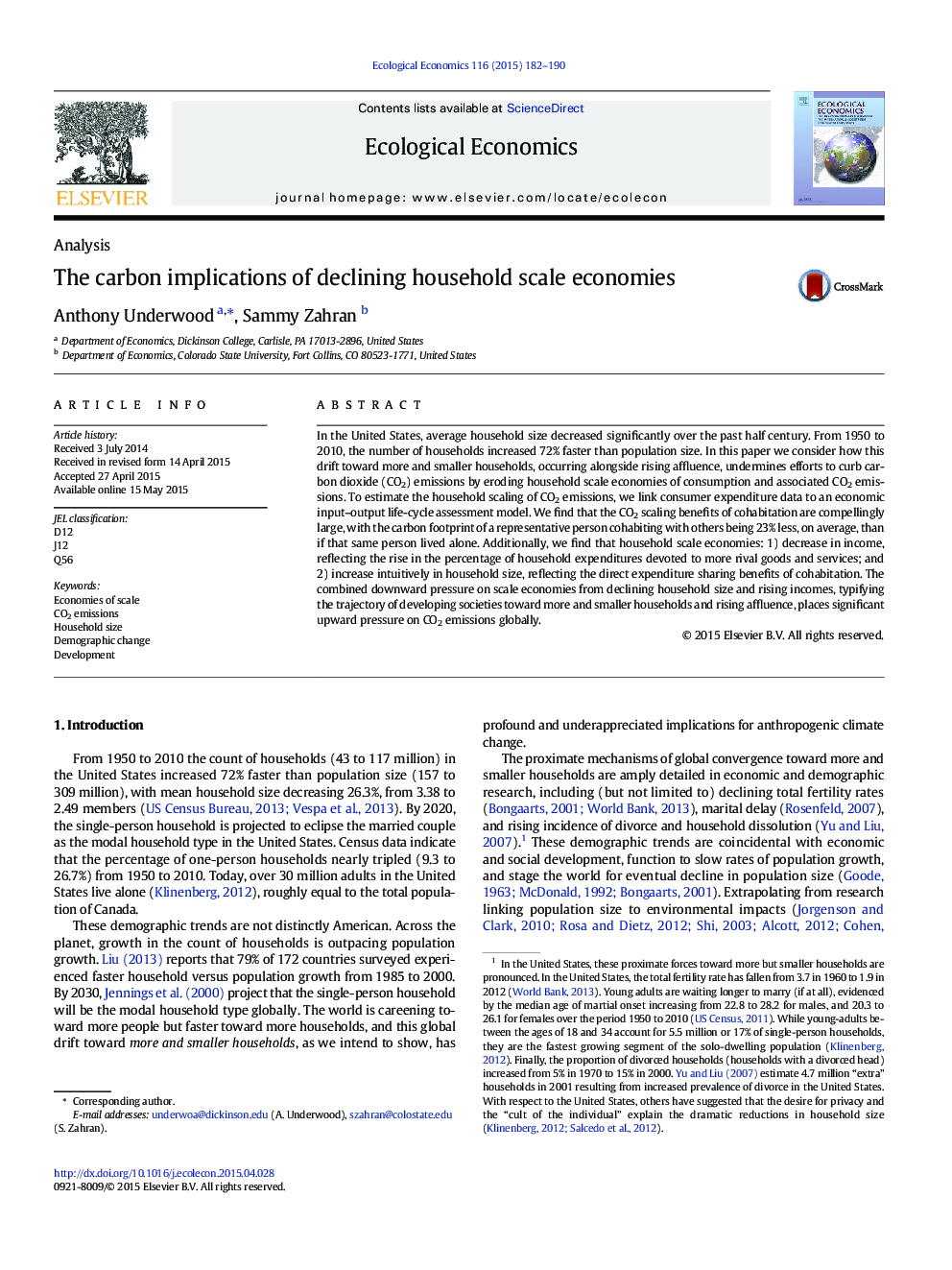| کد مقاله | کد نشریه | سال انتشار | مقاله انگلیسی | نسخه تمام متن |
|---|---|---|---|---|
| 5049438 | 1476363 | 2015 | 9 صفحه PDF | دانلود رایگان |
- The United States is drifting demographically toward more, smaller, affluent households.
- This drift erodes household scale economies of consumption and associated CO2 emissions.
- Scale economies increase in household size, reflecting the sharing benefits of cohabitation.
- Scale economies decrease in income, a shift in expenditures toward more rival goods.
- The combined effect of declining household size and rising incomes erodes scale economies.
In the United States, average household size decreased significantly over the past half century. From 1950 to 2010, the number of households increased 72% faster than population size. In this paper we consider how this drift toward more and smaller households, occurring alongside rising affluence, undermines efforts to curb carbon dioxide (CO2) emissions by eroding household scale economies of consumption and associated CO2 emissions. To estimate the household scaling of CO2 emissions, we link consumer expenditure data to an economic input-output life-cycle assessment model. We find that the CO2 scaling benefits of cohabitation are compellingly large, with the carbon footprint of a representative person cohabiting with others being 23% less, on average, than if that same person lived alone. Additionally, we find that household scale economies: 1) decrease in income, reflecting the rise in the percentage of household expenditures devoted to more rival goods and services; and 2) increase intuitively in household size, reflecting the direct expenditure sharing benefits of cohabitation. The combined downward pressure on scale economies from declining household size and rising incomes, typifying the trajectory of developing societies toward more and smaller households and rising affluence, places significant upward pressure on CO2 emissions globally.
Journal: Ecological Economics - Volume 116, August 2015, Pages 182-190
